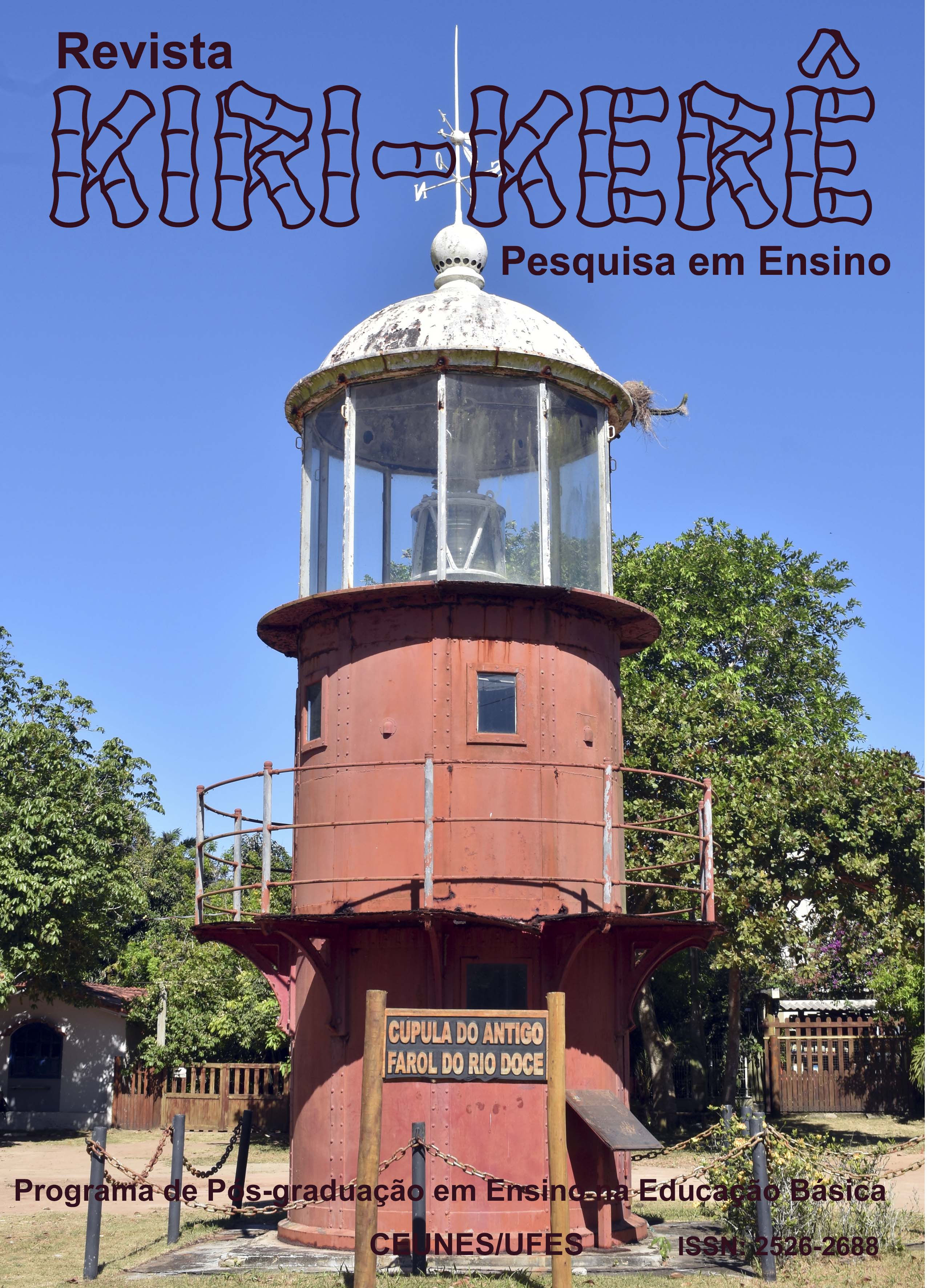The training of teachers who work in multigrade classes in the field at the headquarters of the Municipality of Nova Viçosa/BA
DOI:
https://doi.org/10.47456/krkr.v1i22.45150Keywords:
Multiseries Classes; Teacher Training; Country Schools.Abstract
Rural Education seeks to guarantee the comprehensive training of rural students, providing them with an education that takes sociais, cultural and economic aspects into account. Among the proposals are multi-grade schools, which house students from different grades, age groups and learning levels. These schools are constantly under the stereotypical view that multigrade is an impediment to quality education, even among the teachers who work there. To change this vision of the serial paradigm, teachers need to consider the heterogeneity present in these classes. It is in this sense that teacher training, both initial and continuing, must be an ally, as it needs to be expanded, contributing to transforming teaching practice and changing this reality present in the field. Thus, this article aims to verify and discuss the training of teachers who work in multigrade rural schools in the municipality of Nova Viçosa/BA. The text brings reflections regarding the training of teachers who teach in rural schools with this teaching organization format. In the qualitative research framework, data collection took place through a questionnaire and interviews with four teachers, a director and a coordinator who work in these schools in the municipality of Nova Viçosa/BA. The data was submitted to Hermeneutics to interpret the participants' statements and, thus, discuss with researchers in the area. It was verified that the teachers who work in these schools did not have specific initial training for teaching in multigrades, and the only courses they took follow the logic of the urban-centric paradigm. The results show that it is necessary for the education department responsible for the schools where the research participants teach to review continuing training, to overcome the gaps in initial training and for teachers to actually take into account the heterogeneity present in these classes.
Downloads
References
ANTUNES-ROCHA, M. I; HAGE, S. M. Escola de direito: reinventando as classes multisseriadas. In: ANTUNES-ROCHA, M. I; HAGE, S. M (Orgs). Escola de direito: reinventando as classes multisseriadas. Belo Horizonte: Autêntica, 2010.
ARROYO, M. G. Ofício de mestre: imagens e autoimagens. Petrópolis, RJ: Vozes, 2013.
ARROYO, M. G. Políticas de formação de educadores (as) do Campo. Caderno CEDES, v. 27, n. 72, p. 157-176, maio/ago. 2007.
BRASIL. Lei nº 9.394, de 20 de dezembro de 1996. Estabelece as diretrizes e bases da educação nacional. Diário Oficial da União, Brasília, 23 de dezembro de 1996. Disponível em: < https://www.planalto.gov.br/ccivil_03/leis/L9394.htm>. Acesso em: 15 jun 2022.
BRASIL. Resolução CNE/CEB 1/2002 - Institui Diretrizes Operacionais para a Educação Básica nas Escolas do Campo. MEC: Brasília - DF, 2002.
BRASIL. Resolução CNE/CEB/2/2008 - Estabelece diretrizes complementares, normas e princípios para o desenvolvimento de políticas públicas de atendimento da Educação Básica do Campo. MEC: Brasília - DF, 2008.
CAPRARA, A. Uma abordagem hermenêutica da relação saúde-doença. 2003. Disponível em:< SciELO - Brasil - Uma abordagem hermenêutica da relação saúde-doençaUma abordagem hermenêutica da relação saúde-doença>. Acesso em: 02 de abr. de 2024.
FREIRE, P. Pedagogia da Autonomia: saberes necessários à Prática Educativa. São Paulo: Paz e Terra, 1996.
GOLDENBERG, M. A Arte de Pesquisar: Como fazer pesquisa qualitativa em Ciências Sociais. 8. ed. Rio de Janeiro: Editora Recrod, 2004.
HAGE, S. M. Educação do campo na Amazônia: retratos de realidade das escolas multisseriadas no Pará. Belém: Gráfica e Editora Gutemberg Ltda, 2005.
HAGE, S, M. A Multissérie em pauta: para transgredir o paradigma seriado nas escolas do campo. Grupo de Estudo e Pesquisa em Educação do Campo na Amazônia – GEPERUAZ, 2008. Disponível em: https://www.faced.ufba.br/sites/faced.ufba.br/files/multisserie_pauta_salomao_hage.pdf> Acesso em: 10 de jan. 2022.
HAGE, S. M. Por uma escola do campo de qualidade social: transgredindo o paradigma (multi)seriado de ensino. Brasília, v. 24, n. 85, p. 97-113, abr. 2011.
GIROUX, H. Escola crítica e política cultural. 3. ed. São Paulo: Cortez, 1992.
JESUS, S. M. A. A formação de educadores do campo e o compromisso com a emancipação da classe trabalhadora. In: SOARES, L (Org). Convergências e tensões no campo da formação e do trabalho docente. Belo Horizonte: Autêntica, 2010.
LÜDKE, M.; ANDRÉ, M. E. D. A. Pesquisa em educação: Abordagens qualitativas. 2. ed. Rio de Janeiro: E.P.U., 2018.
MÉSZÁROS, I. A Educação para além do capital. 2 Ed. São Paulo: Boitempo, 2008.
MORAES, E. et al. Transgredindo o paradigma (multis)seriado nas escolas do campo. In: ANTUNES-ROCHA, M. I; HAGE, S. M (Orgs). Escola de direito: reinventando as classes multisseriadas. Belo Horizonte: Autêntica, 2010
NOVA VIÇOSA. Lei complementar nº 028/2010. Estabelece o Plano de Carreira do Magistério Público Municipal. Nova Viçosa: Câmara Municipal, 2010. Disponível em:< Lei Complementar 028-10 - Plano de Carreira Magistério (1).pdf>. Acesso em: 21 ago. 2023.
NÓVOA, A. Os professores e a sua formação. Lisboa: Dom Quixote, 1992.
PIMENTA, S. G. Formação de professores: Saberes da docência e identidade do professor. Nuances, vol. III, setembro de 2002. Disponível em:< http://disciplinas.stoa.usp.br/ >. Acesso em 22. março. 2023
RODRIGUES, C. L. Educação no Meio Rural: Um estudo sobre salas multisseriadas. Belo Horizonte: UFMG, 2009. p. 209. Disponível em: < www.bibliotecadigital.ufmg.br/.../educa_o_no_meio_rural>. Acesso em: out. 2023.
SANTOS, W.L. A prática docente em escolas multisseriadas. Rios Eletrêonica, Paulo Afonso, ano 9, n.9, p. 71-80, 2015.
SCHLÜNZEN JUNIOR, Klaus. Educação a distância no Brasil: caminhos, políticas e perspectivas. ETD - Educação Temática Digital, Campinas, SP, v. 10, n. 2, p. 16–36, 2009.
Downloads
Published
Issue
Section
License
Copyright (c) 2024 Iago Santos da Silva, Franklin Noel dos Santos

This work is licensed under a Creative Commons Attribution-NonCommercial 4.0 International License.
The authors accept, when sending their works, the assignment of their copyrights.

